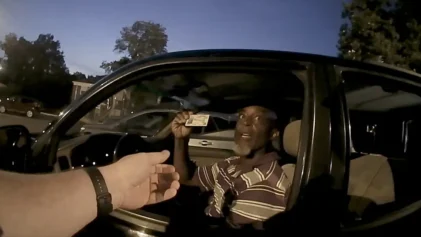“Shameful on the members of the Dayton Police Department for this egregious act of violence,” said Dr. Derrick Foward, President of the Dayton Unit NAACP and Vice President of Ohio Conference NAACP.
Foward is handling the formal complaint filed against the Dayton Police Department in Dayton, Ohio, from Clifford Owensby, 39, a paraplegic who was aggressively pulled out of his vehicle during a traffic stop by Dayton Police on September 30.
Owensby was pulled over by Dayton police after he was seen leaving a suspected drug house. Foward says the house in question is one of Owensby’s rental properties and he stopped by the property to retrieve a cable box from his tenant.
As Owensby drove away, police pulled him over and later asked him to step out of the car, Owensby told officers he was paraplegic and then asked for a supervisor to assist in the matter. Foward says at this point officers forcibly pulled Owensby out of the car.
“He complied,” said Foward, with several of the officers’ commands before things became physical. “He kept telling the police officer that he was a paraplegic, that he’s not going to be able to get him out of the vehicle,” Foward said.
During a press conference held by the Dayton NAACP, Foward, alongside Owensby, demanded accountability from the police. They want the officers involved in Owensby’s arrest taken off the streets until the incident is fully investigated.
Foward says last year, following the murder of George Floyd, the Dayton NAACP along with other organizations partnered with police agencies within Montgomery County, Ohio, including Dayton’s, to create an eight-point strategy to improve policing and boost accountability.
Highlights from the eight-point strategy include implementing a citizen’s review board, banning knee presses and chokeholds, mental health training for officers, and more transparency, including releasing bodycam footage quickly to the public.
As evident with Owensby’s experience, Foward says there is still much work to do to fully implement their plan to improve policing.
At the time of reporting Owensby has not filed a lawsuit against the Dayton Police Department, although Foward expects him to do so, given Owensby has hired legal counsel.
Coming out of Owensby’s experience, Foward would like to see better implicit bias training and more diversity within local police departments to reduce the chances of racial profiling. He also makes a plea to members of the Black community to consider going into law enforcement to help change the culture of policing.
To read more stories like this, visit AtlantaBlackStar.com


